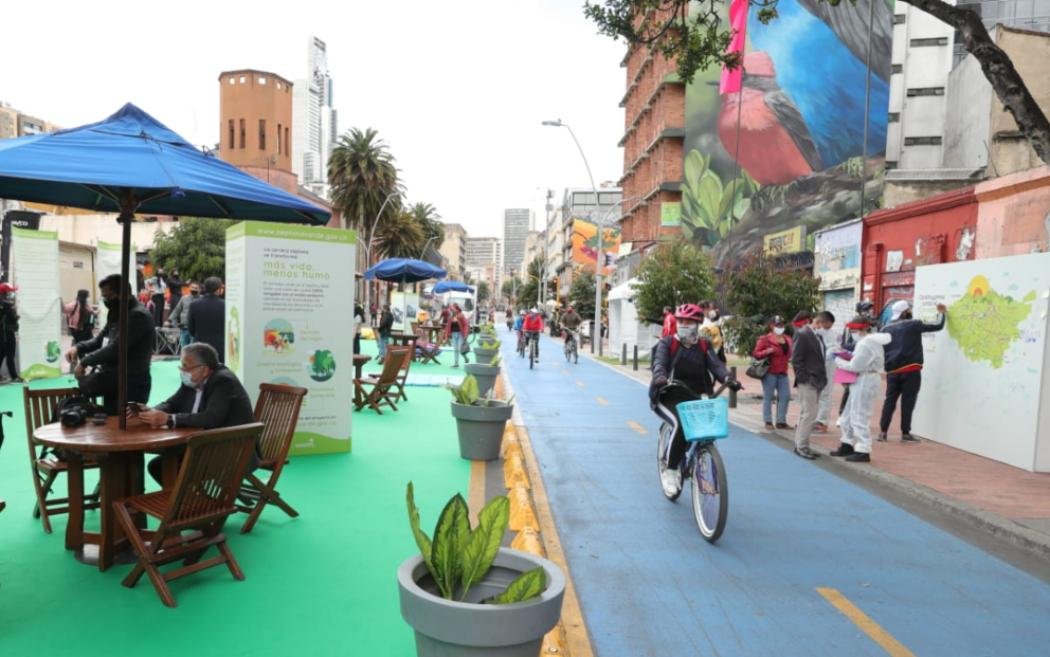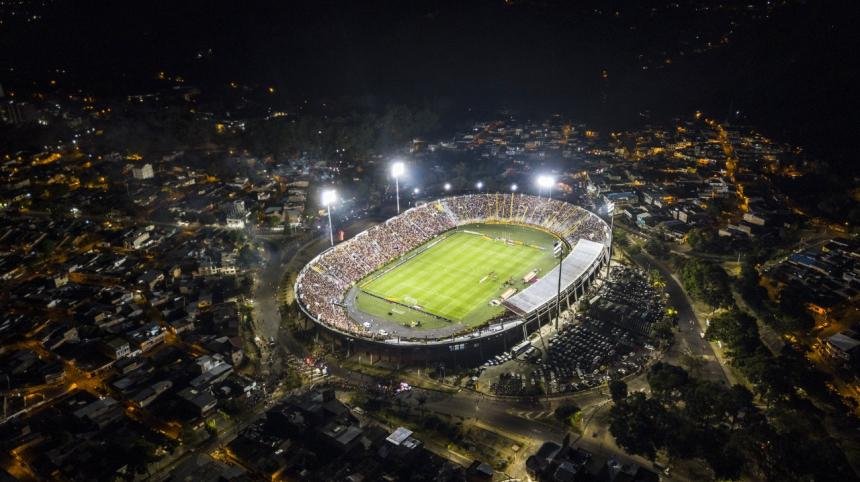
¿Cómo la pandemia transformó los hábitos de movilidad en Bogotá?
2 octubre, 2020
Lista licitación pública para contratar obras de adecuación del estadio Murillo Toro en Ibague´
2 octubre, 2020The World Bank chooses Bogotá as an outstanding case in handling the pandemic
The World Bank, through the Tokyo Center for Development Studies (TDLC) chose the experience of Bogotá as one of the ten best strategies to face the coronavirus pandemic in the world.
The effort of the District Administration caught the attention of this institution, that, with the support of the World Bank, is currently making an analysis of the treatment that cities have given to the stage of economic and social reactivation, and how they have adjusted their policies towards the construction of the so-called “new reality”. In addition, it highlighted the #BogotáACieloAbierto strategy, run by the Secretary for Economic Development, which grouped the city by sectors of vulnerability, promoted the productive apparatus, maintained a constant dialogue between public entities and private companies, and prioritized collective work for the benefit of the city.
As part of their research, the TDLC chose the specialized firm Anteverti, which is carrying out a study dedicated to evaluating ten postcovid-19 strategies, without knowing which are the other nine that where selected. It is known that the selected cities, have stood out because they implemented measures that produced effective changes in the midst of the effort to overcome the emergency, and worked on the projection of more resilient cities, capable of facing future crises.
The current Bogotá administration adjusted its District Development Plan: A New Social and Environmental Contract 2020-2024, to counteract, from all sectors, the impacts of the pandemic in the short, medium and long term. Therefore, the Bogota experience has been chosen as one of the most relevant for all the aspects it manages to balance; protecting citizens in the prevention of contagion, and at the same time, establishing mechanisms that allow the economy to be reactivated without putting the inhabitants´ health at risk.
For Carolina Durán, Secretary of Economic Development, the success of these strategies is the result of a collective work between public entities and private companies: “Now comes the most difficult thing, to maintain discipline so as to not return to quarantine and to position the city as epicenter of entrepreneurship and innovation ”, she assured.
“Bogotá is a city that has prepared to reactivate in a responsible and sustainable way in the midst of this pandemic. This articulated work that has been done from the district administration, and that has included many visions of the city, will allow the capital to see a return of investment, so necessary for economic and social development,” said Juan Gabriel Pérez, executive director of the agency for the promotion of investment Invest in Bogota.
The mixture of joint strategies for citizen culture, achieved behavioral changes in the citizens of Bogota, and is one of the main factors that have contributed to the reduction of contagion. The measures taken by the city, which citizens have assumed responsibly, have resulted in an ICU bed occupancy of 48.4%, and the most recent survey on the use of face-masks shows that 93% of the inhabitants of the city assume as their own the task of taking care of themselves and others.
The study of the Bogota case, which includes the study of its socioeconomic and urban rethinking for the post-pandemic, is currently in the information-gathering phase.
What is TDLC?
The Tokyo Center for Development Studies is a joint initiative between the World Bank and the government of Japan focused on creating links of knowledge, expertise and technology between middle-income countries and Japanese experts, whether from the public, private, academia or civil society. It also works to share relevant and innovative development solutions from Japan to developing countries.
Tomado alcaldía de Bogotá.



